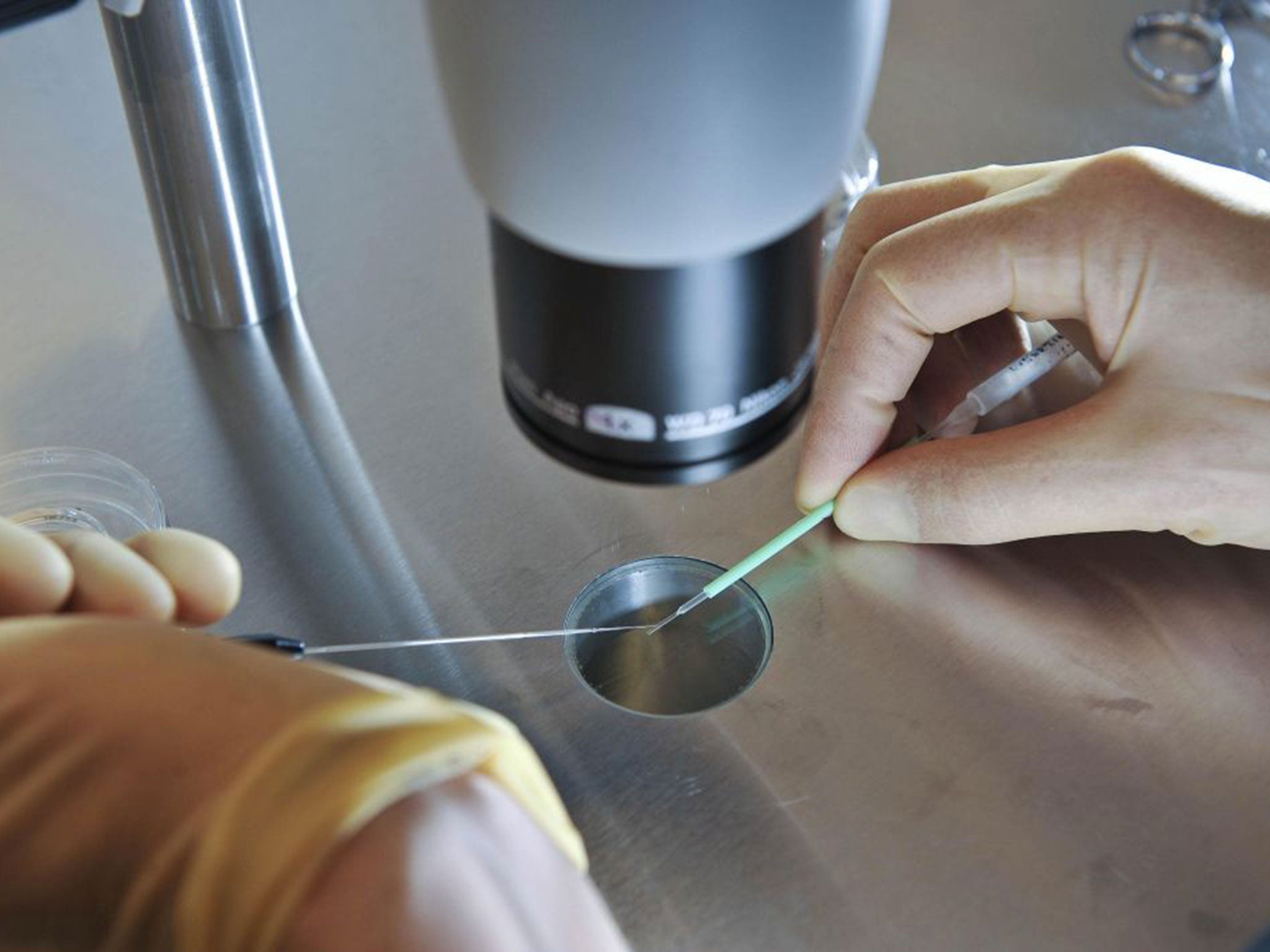Sex will be made unnecessary by 'designer babies', professor says
The scientific developments needed are not far off, Prof Greely claims

The majority of humans in developed countries will stop having sex to procreate within decades, a leading academic has predicted.
Professor Henry Greely believes that in as little as 20 years, most children will be conceived in a laboratory, rather than through sexual intercourse.
He even suggests the natural process of conception could become stigmatised.
The change would mark an evolutionary break with all other human beings, and indeed animals, throughout history.
Prof Greely, Director at the Center for Law and the Biosciences, Stanford University, set out his case in his book, The End of Sex and the Future of Human Reproduction.
“In 20 to 40 years, when a couple wants a baby, he’ll provide sperm and she’ll provide a punch of skin,” Prof Greely told The Times.
He said the female skin sample will be used to create stem cells, which can in turn be used to create eggs.
These eggs can then be fertilised with the sperm cells, resulting in a selection of embryos.
Prof Greely predicts these embryos will be studied for any signs of malady.
“The prospective parents will be told, ‘These five have really serious diseases, you don’t want them’.
"Of the other 95, they will be given the pluses and minuses,” he said.
He said that after weighing up the prospective advantages and disadvantages of the healthier embryos, the parents will choose one to be implanted into the woman, which will become their child.
“Parents will get the embryos grouped by categories,” Prof Greely said.
“One category will be very severe, untreatable, nasty diseases. This will affect one to two per cent of embryos.
“Another category will be other diseases.
“The third is cosmetics: hair, eyes, shape, whether the hair goes white early. We don’t know much about this yet, but we will.
“A fourth category is behavioural. I think here information will be limited. We won’t be able to say, ‘This child is in the top one per cent of intelligence’. We probably will be able to say, ‘This child has a 60 per cent chance of being in the top half’.”
Improved knowledge of the genome and an ability to create egg cells from skin samples – ending the difficult task of harvesting eggs for IVF – are developments expected in the near future and could make the process widely accessible.
In addition, Prof Greely believes that the consequent reduction in hereditary diseases and otherwise unhealthy babies means the process would be cost-efficient.
He believes the process could become the norm to the extent that women becoming pregnant through natural means could be considered irresponsible.
“Particularly in countries where you pay for healthcare socially, if children are born after this is a possibility there may well be a stigma to doing so naturally," he sa
“People will say, ‘You go ahead and have a child with Tay-Sachs disease then, we’re picking up the bill’.”
This new method of birth could also present opportunities for same-sex couples to have their own genetic children.
“What if a woman decided to make eggs from herself and sperm from herself, and then transfer them to her own uterus?" Prof Greely said.
“I don’t think many people would do that, but it’s a big world.”
Join our commenting forum
Join thought-provoking conversations, follow other Independent readers and see their replies
Comments
Bookmark popover
Removed from bookmarks